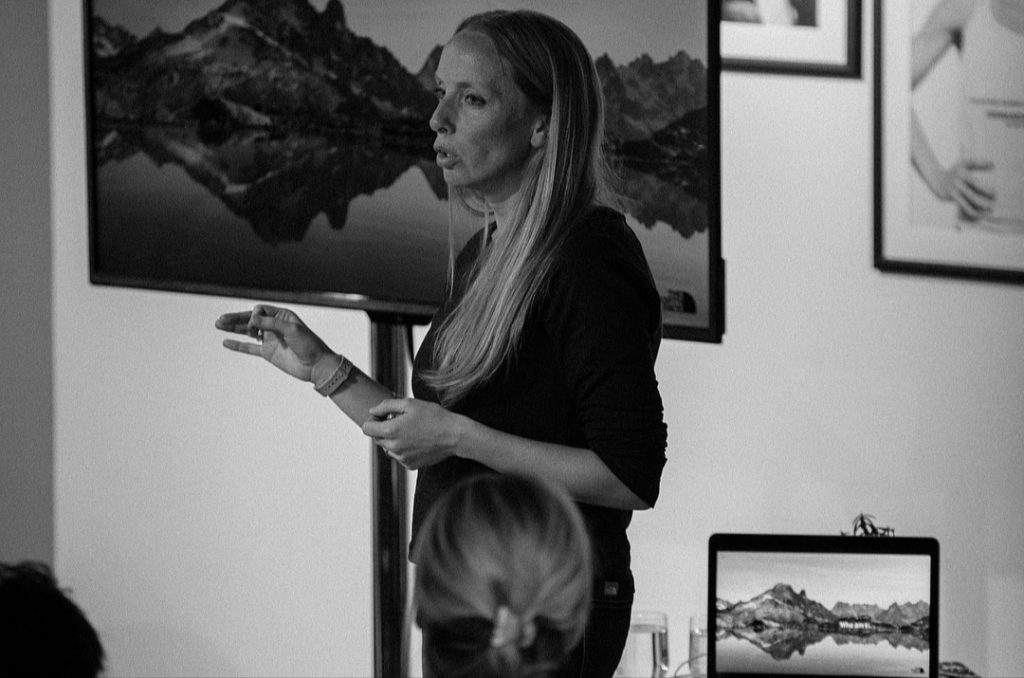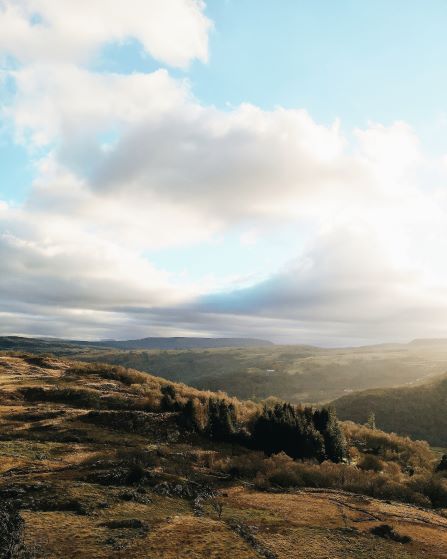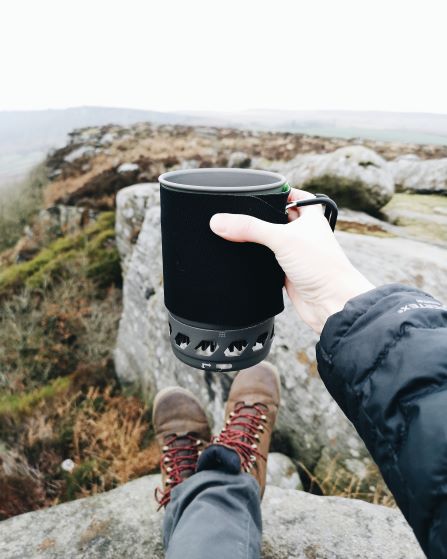#SocialPrescribingJanuary: The interconnections of people and planet: our health depends on nature – Ruth Allen
30/1/19
I’ve moved all over the country and currently live and work in the Peak District, but my attachment to the Welsh hills is enduring and deliberate: these are honest, gritty mountains situated in expansive, but humble surroundings.

When I go outside, I am with the world, I am breathing fresh air, my body is in movement and I have time to think creatively about my life. Time outside is good for my mind, my body and my soul, and builds to my overall picture of good health.
I’ve been enjoying Wales for years, but recently I’ve been exploring the National Parks with clients who are also eager to attend to their health and wellbeing outdoors. As a therapist and organisational trainer specialising in outdoor work, my priority is helping individuals (and communities of individuals) connect with nature as a way of reconnecting with themselves and others.
I work to empower people to take ownership of their mental and emotional well-being in the hope that this promotes a reciprocal and spontaneous relationship with the environment, resulting in greater care and stewardship over time. Afterall, we care for the things we value – whether that’s local green spaces or our own health.
The rise in social prescribing projects across the country, indicates that working in this situated way is becoming increasingly important, as we recognise the importance of people being supported in the context of their community and environment. Startlingly, when it comes to considering mortality risk factors, those with stronger social relationships and connectedness have 50%[1] increased likelihood of survival than those with weaker social bonds.

In my practice, working outdoors sets the example that we’re all part of a context, an ecosystem, and that this network of community matters to our individual, collective and environmental health. It is a subtle shift in perspective, inherent in the method of working in and around other people supported by the healing properties of fresh air, vast landscapes and the ageless wisdom of trees.
To work with a person’s problems shut away in a room sends a message that the individual is the problem and reinforces a message of ‘shameful’ pathology and illness. Working and promoting time outdoors is one step towards putting individuals back in their natural context and helping them see that they are part of a living and breathing world; constantly striving for health and life. It also erodes the false dichotomy that physical and mental health exist in different spheres. When our bodies are engaged, so too are our minds, engaging in a virtuous circle of healing and well-being maintenance.

Well-being is far from an individual pursuit. Holistic and integrated solutions need to be explored by all of our society. Put bluntly, anyone who is alive has a stake in what it means to be well.
Individuals need to exercise their autonomy and take responsibility for what ‘complete physical, mental and social well-being’ (WHO definition of ‘health’) means to them, but communities, organisations, businesses, government also need to lead on the reappraisal of what it is to be healthy.
It is for all of us to regularly consider our ‘health status’ and come to terms with the idea that health is subjective. What is right for you, won’t be right for everyone, and systems, communities and organisations need to be aware of the implications of this multifaceted subjectivity too. No singular intervention is a panacea, but yes, forest bathing, cycle lanes and healthy workplace policies will all contribute to a positive ‘ecology’ of well-being.
In the short term, this complexity will invariably lead to more questions than answers, the need for more honest conversations, and more head-scratching, but this shouldn’t scare us. Any therapist knows that you must first pass through the storm, before emerging with new awareness and a way forward.
At present, around half of the Welsh government budget is spend on (ill-)health. Nationally, only 5% of the NHS budget is spent on prevention. Led by our most revered public institution, we have got too comfortable with a reactive model of health that treats sick individuals.
It is well established that that the main determinants of health are housing, living and working conditions, education, food and social networks, and that these account for 90% of health outcomes[2]. First up then, we need to collectively reclaim the notion of health away from ill-health, and honour it as a byword for living or life. What are we doing today that honours life tomorrow? How do we move away from viewing our symptoms as a sign of illness, rather than a wake-up call to live better?
This, for me, is what’s exciting about The Well-being of Future Generations Act. The seven Goals and five Ways of Working offer a way forward for a whole country on the rapid approach to a needed paradigm shift in the field of health. It makes health everybody’s business.
We cannot wait for permission. We cannot keep waiting for appointments, medication and surgeries as the definitive pathway to health. Likewise, we cannot argue over whether it’s the individual’s responsibility or the governments; waiting for success or failure in one domain to catalyse action in another.
We all need to take a fearless approach now, together and simultaneously, recognising that all of us are in a dynamic interplay of life and have responsibility to each other to redefine what health really looks like. In the final analysis, this is the ultimate lesson of being on a complex, multi-layered, connected, living planet.
_________________
Ruth Allen is a a counselling psychotherapist, organisational trainer and coach, and writer based in the Peak District, UK. She specialises in outdoor therapies, and is a keen mountain adventurer in her spare time. You can find out more about Ruth’s work at www.whitepeakwellbeing.com or follow her adventures and everyday philosophy on Instagram @whitepeak_ruth
[1] Allen, L. N., Barry, E., Gilbert, C., Honney, R. and Turner-Moss, E. (2019) How to move from managing sick individuals to creating healthy communities, Br J Gen Pract., 69, 8-9.
[2] McGovern, L., Miller, G., Hughes-Cromwick, P. (2014) Health Policy Brief. The relative contribution of multiple determinants to health outcomes. Health Affairs.